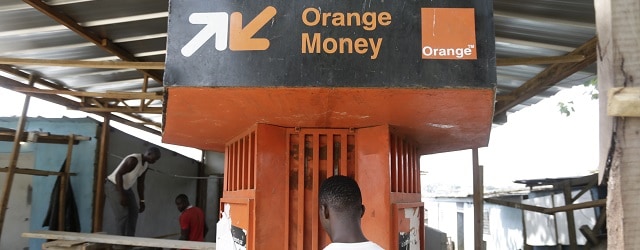Orange skips brick-and-mortar retail locations in West Africa for an online banking service instead.

Frances’s largest telecom operator Orange S.A. launched Orange Bank Africa (OBA)—its West African mobile banking service—on July 23 beginning in Côte d’Ivoire and plans to expand into Burkina Faso, Senegal and Mali.
OBA will expand financial inclusion in the West African Economic and Monetary Union (WAEM) which consists of eight member states including Guinea-Bissau, Burkina Faso, Senegal, Mali, Côte d’Ivoire, Niger, Benin and Togo. Banking penetration in WAEM is a paltry 19.3% according to a July 2019 Central Bank of West African States report, with Togo’s 26.8% being the highest among WAEM members.
Preceding the OBA initiative is the brand’s mobile money service—Orange Money—founded in June 2008. Today, Orange Money is available in 17 African countries, serves almost 20 million African customers, and generated €425 million in 2019 and through OBA, the bank hopes to serve an additional 10 millon customers in five years.
“Orange Bank Africa has some important advantages over traditional banks. Firstly, traditional banks have a moderate footprint in larger cities and a negligible footprint in rural areas. Orange Bank Africa does not need physical infrastructure, and so can grow based on its mobile money service alone. Existing data from Orange Money establishes the credit worthiness of Orange Bank Africa customers for the purposes of granting loans,” says Dr. Henry Lancaster, a senior analyst at BuddeComm, an Australian independent research and consultancy company focused on the telecommunications market.
Dr. Lancaster believes OBA will be profitable because it is building on the success of Orange Money: “If we look at Q1 2020 data we can see that Orange Money is a major growth driver for operations in Africa. Orange Money revenue increased 22.3% in the first quarter, and the active user base increased 20.3% year-on-year to 18.6 million (about 39% of the 47 million registered Orange Money users). Some 90% of retail services revenue growth in Q1 2020 came from mobile data, Orange Money, and fixed-line broadband. Given that fixed-line broadband is negligible in most of the markets, the data and money together really account for by far the largest share of revenue.”
Mr. Gyude Moore, a senior policy fellow at the Center for Global Development (CGD), an independent, nonpartisan research institution based in the US, notes that France’s historical ties with west Africa create an auspicious environment for French companies to thrive in the region: “French influence in West Africa is so ingrained, the currency (CFA/eco) of 12 francophone countries in West Africa is backed by the French state. For French companies in this region, it has largely been with the advantages akin to operations in their domestic market. As the company notes, the idea of the bank is on the success of Orange Money and it appears Orange Money has been most successful in West Africa. Believe me, if the economics and politics were not aligned, Orange would launch the bank elsewhere. The news is therefore not that they have chosen West Africa. It would have been unusual if the Orange Bank’s market entry and expansion did not begin in a region where there’s such embedded advantage.”



